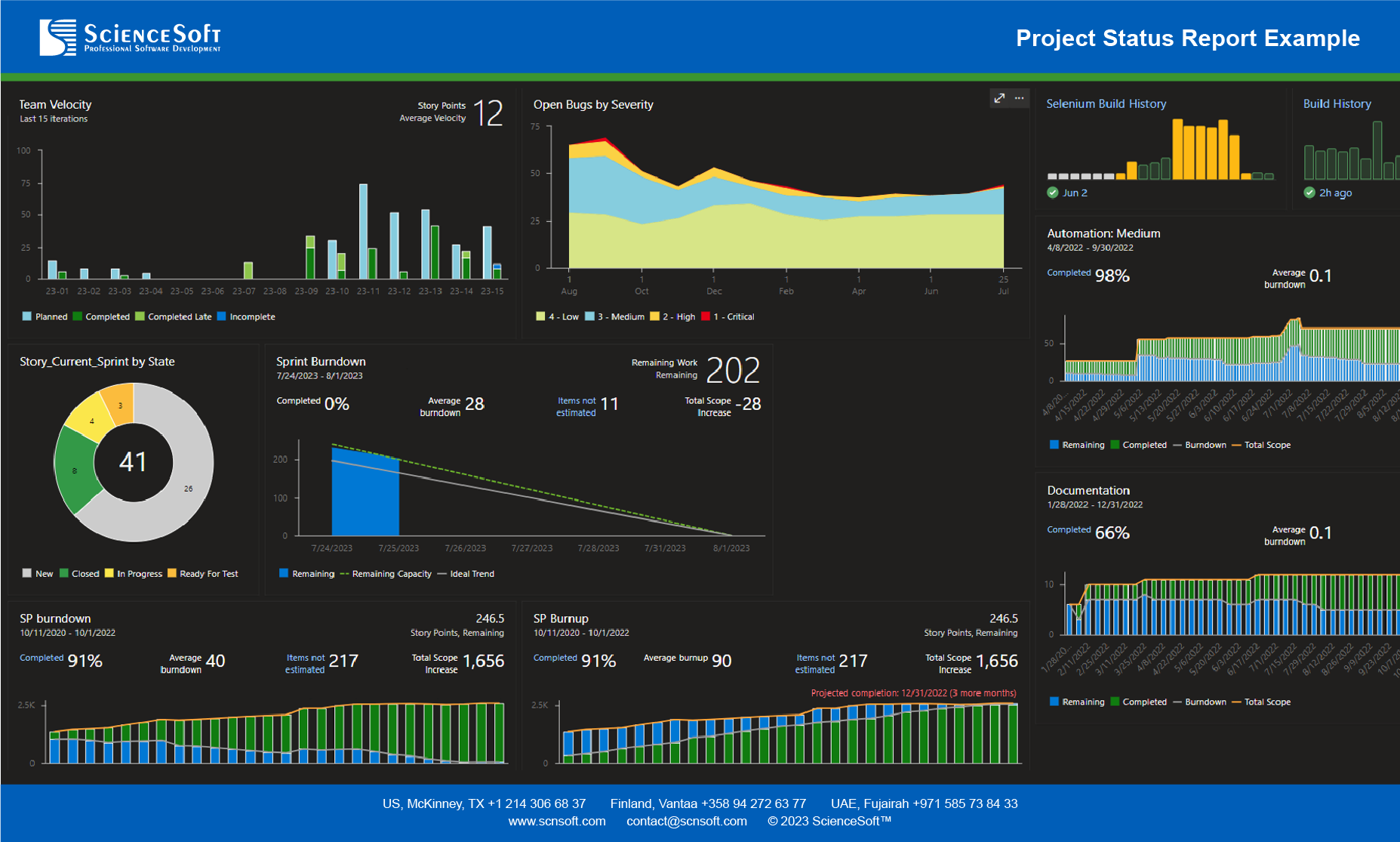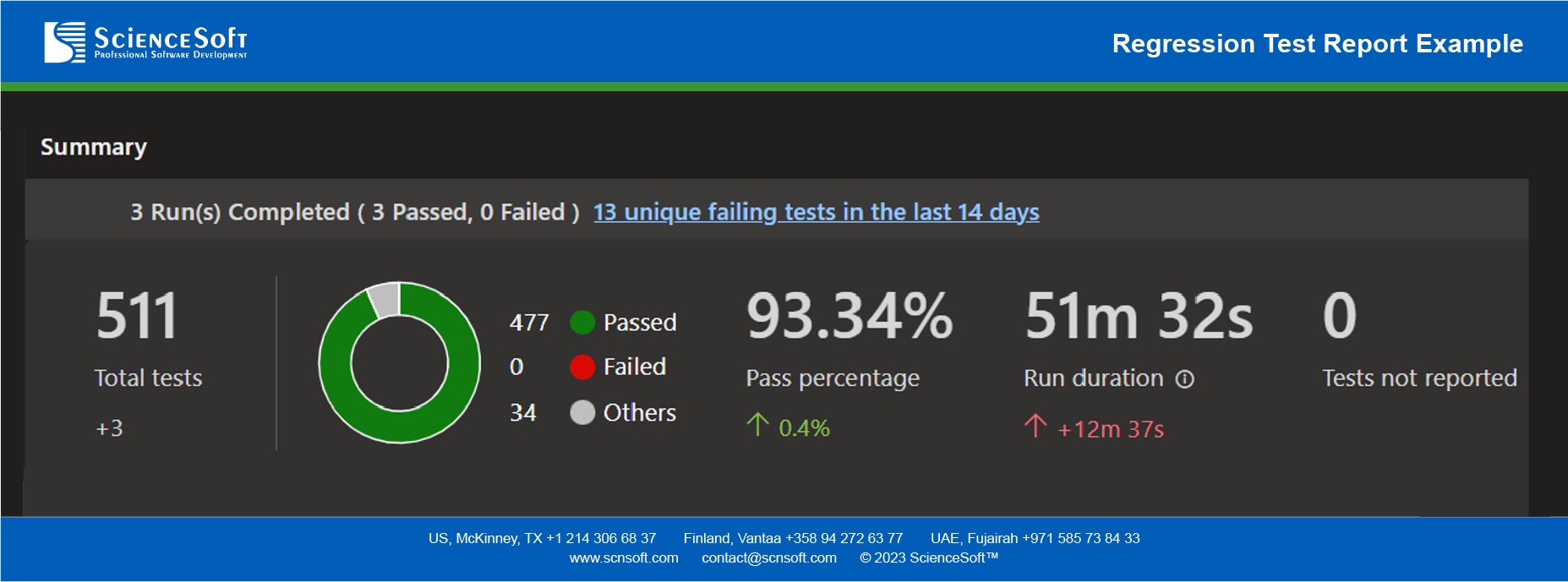ScienceSoft’s Approach to Software Development Reporting
Comprehensive project reporting helps control the software development pace, easily track the team’s adherence to the plan, and objectively measure cooperation efficiency.
Drawing on the experience from 3,600 successful IT projects, ScienceSoft’s approach to reporting is based on the principles of clarity, transparency, consistency, and maximized value.
More than Metrics: Our Reporting Best Practices
Types of Reports We Deliver in Software Development Projects
Process effectiveness reports
These reports provide insight into the overall project health, including resource performance, development pace, scope coverage, variance, and risks. Along with the process updates, we share our forecasts on the project flow and improvement recommendations.
- Project status reports reflect the current state of work in progress. We report metrics like release burndown (tasks completed during the iteration), tasks in the backlog (measured in user stories, epics, or the entire project scope), actual time spent, estimated time to complete particular tasks, and tactical risks.
Key value: We use the insights to understand the real workload capacity of our team, weigh its ability to deliver as planned, and accurately plan the task scope.
See a fragment of our Agile project report

HIDE
- Project health reports provide a snapshot of the development progress alignment with the agreed scope, timelines, and cost objectives. Here, we cover major teamwork efficiency metrics, such as cumulative flow, average cycle time, velocity, throughput, and utilization rate.
Key value: We analyze the metrics to detect possible development process improvements early on and plan strategic workflow adjustments.
- Time tracking reports show the actual time ScienceSoft’s experts spent on particular pieces of work.
Key value: Based on the report findings, we constantly optimize resource allocation for higher productivity and lower costs.
See a sample of our time tracking report
HIDE
- Variance reports compare the planned and actual outcomes across the pre-agreed success metrics. We usually bind the reports to the project schedule, scope, and budget KPIs like actual vs. planned timelines or actual vs. baseline cost.
Key value: We analyze variance data and trends to promptly reveal the areas for improvement and address potential gaps appropriately.
- Risk reports highlight the known and emerging project constraints and their potential impact on the planned development process.
Key value: We use the insights to create an optimal risk mitigation plan and maintain a smooth project flow.
- A project closure report is the final deliverable reflecting the scope, schedule, budget, and service quality outcomes.
Key value: This report summarizes our team’s overall performance and proves our commitment to continuous improvement. Our clients can use report insights to measure the cooperation success and provide feedback on our work.
Software quality reports
This report category focuses on describing the quality of a delivered solution. Depending on the project specifics and a testing strategy, our QA reporting scope may cover the following:
- Build-bound test reports describe the testing progress, revealed issues, defect validation results, and invested efforts.
- Regression test reports shed light on software issues caused by the implementation of new features. In the majority of our projects, regression test reporting is fully automated.
Explore a fragment of our Azure pipeline report

HIDE
- Code review reports describe the code issues, their potential short- and long-term impact, and optimal ways to fix the flaws.
- Security audit reports show the security level of software under development. Our clients usually request security audits for solutions with strict, often legally imposed requirements for sensitive data protection: e.g., healthcare software, financial systems, blockchain smart contracts.
Reporting Tools We Use
Reporting software helps our project managers easily collect project data from the team members, quickly generate reports, and provide customer-friendly visualization. We choose particular reporting tools depending on each project’s specific needs and are ready to adopt our clients’ preferred software. Among the proven reporting tools we often use are:
Jira
Trello
Asana
Basecamp
Azure DevOps

 Schedule a call
Schedule a call


